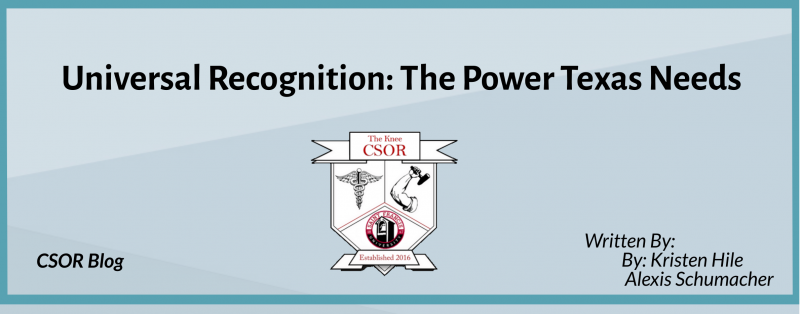
Universal Recognition: The Power Texas Needs
March 17, 2021
Moving Mountains of Regulations
April 8, 2021Kansas Residents Deserve the Right to Work
 Alexis Schumacher
Alexis Schumacher  Bradley Tune
Bradley Tune
Published 4/8/2021
By: Alexis Schumacher, MHRM and Bradley Tune
The Declaration of Independence famously guaranteed us the right to “life, liberty, and the pursuit of happiness.” Americans have a basic right to pursue happiness, to work hard, and to use our talents to provide for ourselves and our families while contributing to society. For too many Kansas residents, the basic right to earn an honest living is hampered by arbitrary occupational licensing laws. Occupational licensing laws block Kansas residents from working without the government’s permission. SB10 proposes that state licensing boards conduct an evaluation within the upcoming year to eliminate unnecessary regulations. Occupational licensing reform will establish Kansas as a leader in providing opportunities to curb anticompetitive licensing rules and supporting our founding rights.
Legislators have a duty to monitor and protect our health and safety. Likewise, they also have a corresponding obligation to defend our right to earn an honest living and to pursue happiness. It makes logical sense to routinely conduct licensing reviews to repeal unnecessary statues to keep up with our evolving society and to provide checks and balances on state governance. The world we live in today is not what the world was for our parents 60 years ago. America was a manufacturing-centered economy, requiring only 4% individuals to be licensed. Now in 2021, America has progressed into a service-oriented economy, demanding 25% of all American jobs to be licensed. This is a 500% increase.
We must let go of the misconception that laws are unchanging. As society changes, the law too must change in order to maintain solidity and civilized society. Occupational licensing laws have consequences. Licensing has not only decreased state mobility, but it has raised prices and slowed down growth in licensed fields. Likewise, 1 out of 3 three Americans has some sort of criminal record, demonstrating a 500% increase in incarceration rates over the last forty years. Yet, countless occupational licensing laws still require “good character,” insinuating more challenges for individuals seeking licensure than it would have half a century ago. Does a criminal conviction mean the same thing today as it did 50 years ago? Is an occupational licensure requirement comparable to what it was 50 years ago? Our policymakers have a duty to ask difficult questions like these to better grant a right to earn an honest living for Americans.
Regularly reviewing occupational licensing provisions would provide an important check on the existing policymakers and regulators. Our entire government centers around the idea of checks and balances to constrain those in power. Occupational licensing has been described as a form of cronyism, hurting low-income workers while protecting higher-income workers. Just as the American people regularly review politicians every election cycle, it logically follows that the policies of regulators and policymakers should be subject to review, as a check against corruption and favoritism.
Americans cherish our most basic right to be able to earn an honest living. Existing laws requiring workers to obtain a stamp of government approval diminish employment opportunities. In a recovering period post-COVID-19, many of us idealize the idea of politicians creating more jobs. Regulation that goes too far, however, may be destroying jobs. Biennial reviews of licensing boards that are proposed in SB10 will help promote the right of Kansas families to work, rather than constrain it. All residents of the Sunflower State deserve the right to pursue the American dream.
Bradley Tune and Alexis Schumacher both work for the Knee Center for the Study of Occupational Regulation at Saint Francis University in Loretto, PA.


